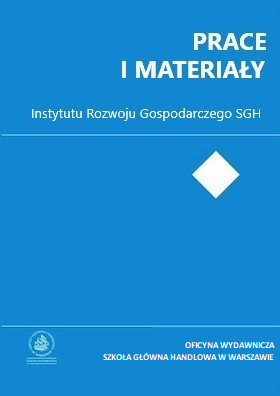The Impact of Phrasing of Selected Questions on the Results of the Business Tendency Surveys Conducted by the Central Statistical Office of Poland
##plugins.themes.bootstrap3.article.main##
Abstrakt
Precise wording of qualitative questions poses substantial problem because frequently even small lack of accuracy or inappropriate word used in a question may bias surveys' results. We analyze an impact of the wording on results of the qualitative business tendency surveys conducted by CSO of Poland. The relationship between the way survey questions are formulated and obtained replies is pointed out, e.g. the influence of adding explanatory notes and taking into account a kind of activity respondents perform. (original abstract)
##plugins.themes.bootstrap3.article.details##
Bibliografia
European Commission, The Joint Harmonised EU Programme of Business and Consumer Surveys. User guide, 21 March 2014.
Hardy, W. (2015). Długość kwestionariusza a precyzja odpowiedzi na pytania ilościowe w badaniach ankietowych, Ekonomista, 5 (160), 707-726.
Kalton, G., Schuman, H. (1982). The effect of the question on survey responses: A review, Journal of the Royal Statistical Society, Series A, 145 (1), 42-73.
Krosnick, J. A. (1991). Response strategies for coping with the cognitive demands of attitude measures in surveys, Applied Cognitive Psychology, 5 (3), 213-236.
Presser, S., Schuman, H. (1977). Question wording as an independent variable in survey analysis, Sociological Methods & Research, 6 (2), 151-170.
Badanie koniunktury gospodarczej, CSO, Departament Przedsiębiorstw, Warszawa 2015.
